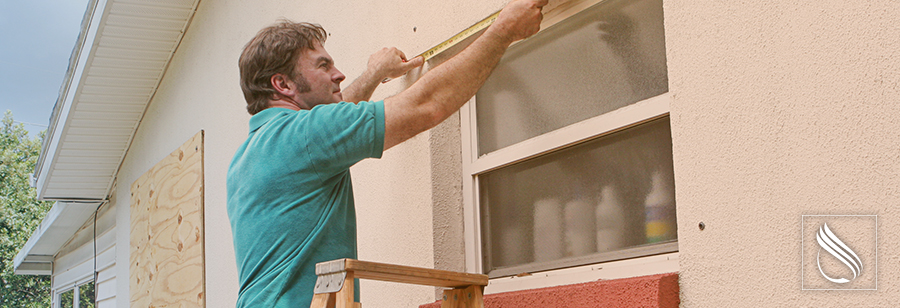Natural disasters and severe weather conditions can occur at any time during the year. Whether it is a flood, hurricane/typhoon or tornado/cyclone—severe weather conditions may occur with plenty of warning or with no warning at all. As a leader in your church, it is vital to ensure your ministry is prepared to face the natural disasters and severe storms that may appear.
Hurricane/Typhoon
Strong winds, rain, and flooding are typical during a hurricane or typhoon. Stormy conditions can bring plenty of destruction and danger to your ministry. First and foremost, it is essential to pay attention to local weather alerts. Based on declarations from local officials, it may be necessary to cancel church events and ask church members to stay home for their safety. Additionally, you may need to reinforce your facilities windows and doors to minimize damage. Last, keep all outdoor items such as garbage cans or equipment stored or secured to prevent additional damage should winds increase and move those items.Tornado/Cyclone
These weather emergencies can be hazardous if you do not prepare for their arrival. Again, it is critical to pay attention to local weather alerts and declarations from local officials. Make sure your church leaders are signed up to receive alerts from the community warning system.With this type of natural disaster, city officials may sound an alarm to alert you of a coming storm and to take shelter. All church leaders and members should be familiar with the warning alarm and act accordingly when it is heard. If for any reason your congregation is in your church facilities when the alarm sounds , all members should know where to go and what to do to stay safe. Make sure to keep the path to the safe rooms or safe areas clear of any obstacles at all times.
Flood
This type of natural disaster can often occur very quickly with minimal warning. The best way to prepare for flooding is to connect with the local emergency alert system so that you are aware of when a flash flood warning is in effect and react appropriately. Second, look into the types of flood risks in the area of your church to better prepare for potential floods.It is also important to plan ahead and protect valuables and important documents from being damaged by flooding. One option to protect vital records is by storing them in a waterproof container. If a flood warning occurs and you must evacuate, move valuable items or equipment to higher ground to minimize the potential for damage.
Safety Precautions for Every Storm
These are just a few guidelines that can better prepare your ministry be to face severe weather and storms. While these practices may not completely eliminate the risk of injury, damage, or loss they can significantly reduce the impact of storm-related destruction. Preparing for these natural disasters will do much to not only better protect your church facilities but also to better protect your church family.Learn more about preparing for severe storms and weather with ARM’s Severe Weather Guide.


